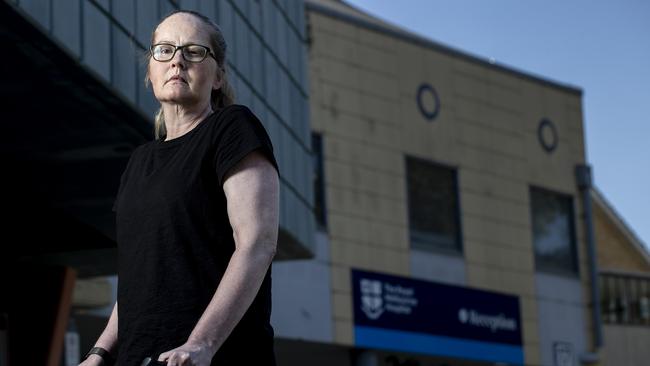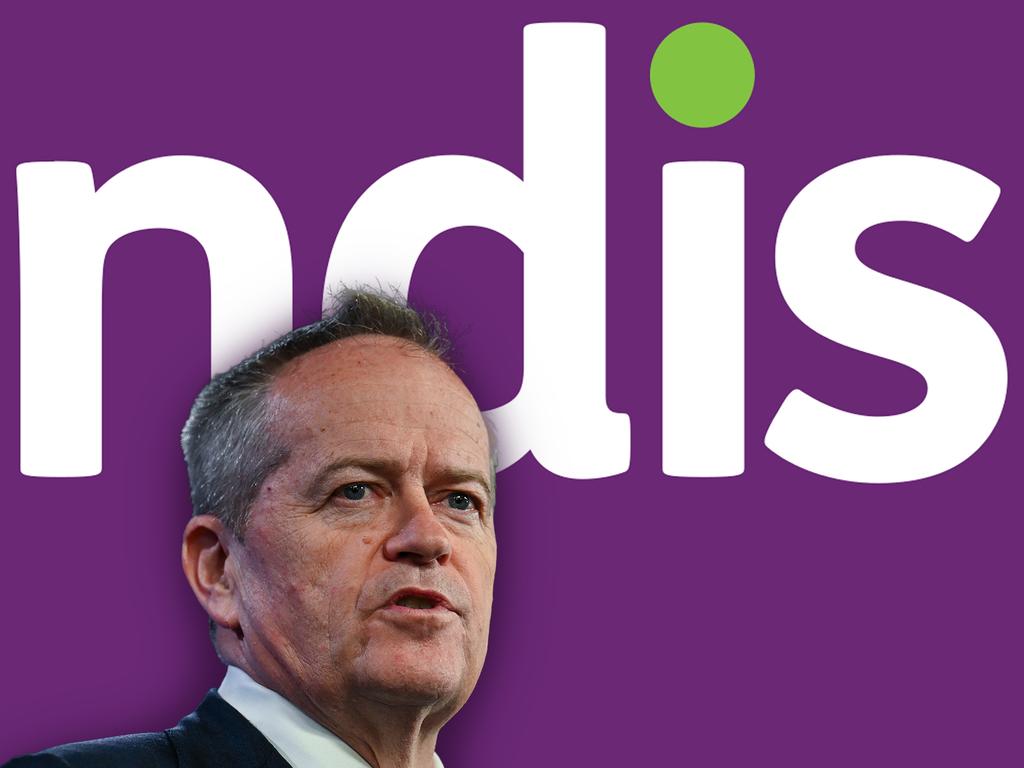NDIS turmoil as eligibility proof demand surges
Thousands of NDIS participants have been booted off the scheme after a flurry of letters from agency to re-prove their eligibility.

A surge in disabled Australians being asked to prove they are still eligible for the NDIS has sparked alarm from providers unable to keep up with the demand for reassessments and prompted calls for immediate clarity on the separate system of health and education services the government promised would be propped up for people with milder disabilities ineligible for the $40bn-a-year disability scheme.
Figures showing more than 1200 NDIS participants were receiving letters every week from the National Disability Insurance Agency informing them their eligibility must be reassessed come as the government seeks to reduce the annual growth of the scheme to 8 per cent or risk the NDIS blowing out to $100bn-a-year by end of decade.
Nearly 50 per cent of people who received a letter – which asked for evidence from healthcare professionals about participants’ conditions within 28 days – have had their plans revoked.
The rise in eligibility reassessments follows NDIS Minister Bill Shorten passing milestone laws in August to rein in the cost of the ballooning scheme by giving the agency greater powers over participants’ plans and outlining clearly what NDIS funding could and could not be used on.
Mr Shorten said that the government would also “work to develop clarity about eligibility and access to the scheme”, amid figures showing one in 10 boys aged five to seven were on the NDIS – most with autism or other developmental delays.
An NDIA spokesman said eligibility reassessments were “not new and are normal practice in the National Disability Insurance Scheme having been legislated since the scheme commenced”.
“There have also been no changes to the current operation of our eligibility reassessment approach as a result of recent legislation changes,” he said.
Warrnambool resident Heidi Rentsch, who has a progressive neurological condition, was notified weeks after getting her latest 12 month plan in October that her eligibility needed to be reassessed.
“It just seems to be that it was in the news and then all of a sudden I got a phone call to question my eligibility,” she said.
“It took a bit of my dignity away … The whole thing puts you under stress and that’s not good for my condition.
Providers also raised concern with the eligibility reassessments called on by the agency after Labor passed its new laws, with Occupational Therapy Australia writing to the Agency about the workforce’s inability to keep up.
“In terms of the evidence that participants need to provide to support that process of review lands on a workforce that’s already stretched,” Occupational Therapy Australia chief occupational Therapist Michelle Oliver said.
“It’s a workforce pressure issue for us as well as the moral challenge or the moral injury that’s been placed on our profession.
“There’s a lot of uncertainty amongst primarily our sole traders around what’s the new year going to look like if this volume of people … have their plans revoked and what does that mean for them?”
Evidence in senate estimates revealed a team of 95 staff within the NDIA had been tasked with completing reassessments, with about 80 per cent of the nearly 8,000 plans reviewed being children.
Agency officials said the increase in eligibility reviews was a result of a boost in budget funding that allowed more of such work to be done by the NDIA, effectively clearing backlogs of reviews.
A spokeswoman for Mr Shorten slammed concerns around the letters on eligibility re-assessment as “Greens’ scaremongering”.
“(The) scheme has grown by 23,000 from July to October this year. If there was an exodus then it would be shrinking not growing, but it’s growing slower than it was under the Liberals,” she said.
But Ms Oliver hit out at the lack of services in place outside of the NDIS for participants to transition to, despite promises from the federal government that it would work with states to set up a system of additional supports for those not eligible for the scheme.
“Whilst the government has signalled that foundational supports will become the responsibility of the states and territories, there are currently no services in place,” she said.
“This will lead to these children falling through the gaps and falling behind whilst the governments sort out who will provide what, to who and when.”
Children and Young People with Disability Australia revealed in a survey of disabled people and their carers that 93 per cent of people didn’t understand how foundational supports would work or affect their lives.
“Right now, children are being pushed from the oasis that is the NDIS, they’re being left to fend for themselves in the desert because that vital broader ecosystem of disability supports just doesn’t exist yet,” CYDA CEO Skye Kakoschke-Moore said.
Consultation on foundational supports closed on Thursday, with disability ministers due to meet on Friday.
Social Services Amanda Rishworth – who is responsible for leading the design of foundational supports and is widely expected to absorb the NDIS portfolio after Mr Shorten’s departure from politics in February – vowed that foundational supports would “be designed to meet the needs of Australians with disability outside of the NDIS”.
“Work is occurring between Commonwealth, states and territories to articulate priorities for establishing the initial phase of additional foundational supports, including the cohorts to be included in the initial phase, the types of foundational supports to be commissioned and the pathway for establishing the foundational supports,” she said.
“The final decision on the initial priority cohorts and types of foundational supports to be established is a matter for national cabinet.”








To join the conversation, please log in. Don't have an account? Register
Join the conversation, you are commenting as Logout